Publications
Articles, publications, books, tools and multimedia features from the U.S. Institute of Peace provide the latest news, analysis, research findings, practitioner guides and reports, all related to the conflict zones and issues that are at the center of the Institute’s work to prevent and reduce violent conflict.
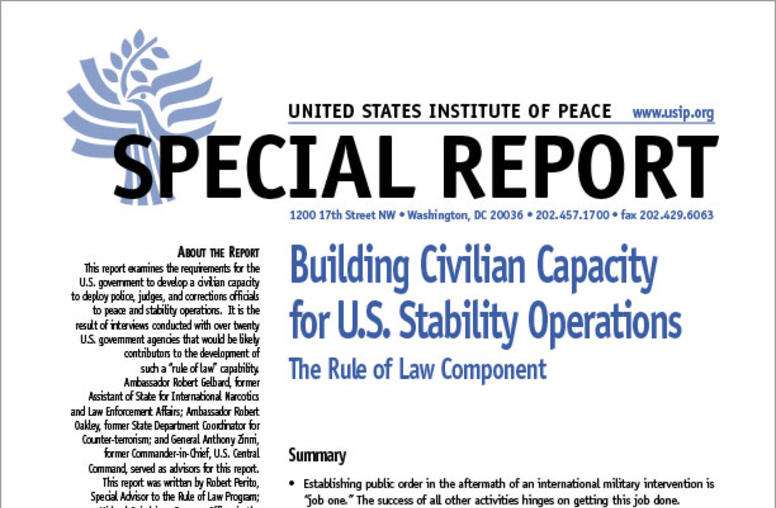
Building Civilian Capacity for U.S. Stability Operations: The Rule of Law Component
Establishing public order in the aftermath of an international military intervention is "job one." The success of all other activities hinges on getting this job done. Military combat units, however, are neither trained nor equipped for riot control and law enforcement functions. No rapidly deployable U.S. civilian capacity exists to provide the full spectrum of rule of law functions—from intelligence to incarceration—needed to support military forces engaged in peace and stability operations...
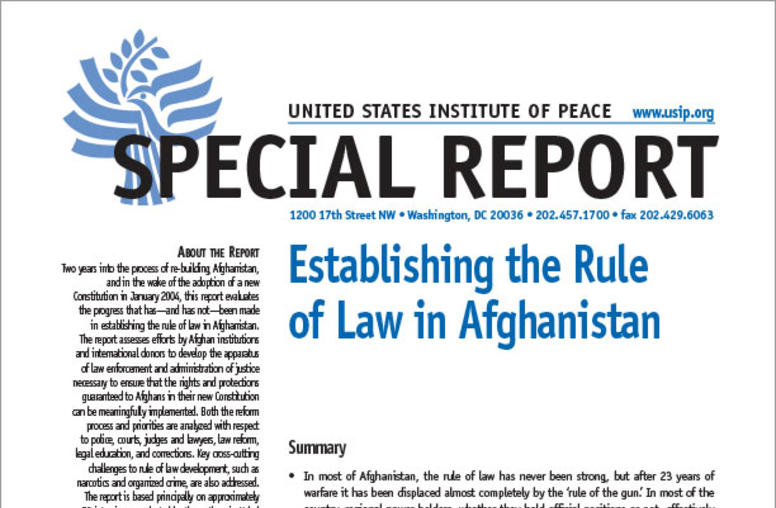
Establishing the Rule of Law in Afghanistan
In most of Afghanistan, the rule of law has never been strong, but after 23 years of warfare it has been displaced almost completely by the 'rule of the gun.' In most of the country, regional power-holders, whether they hold official positions or not, effectively exercise political, police and judicial authority through their control of militia forces.
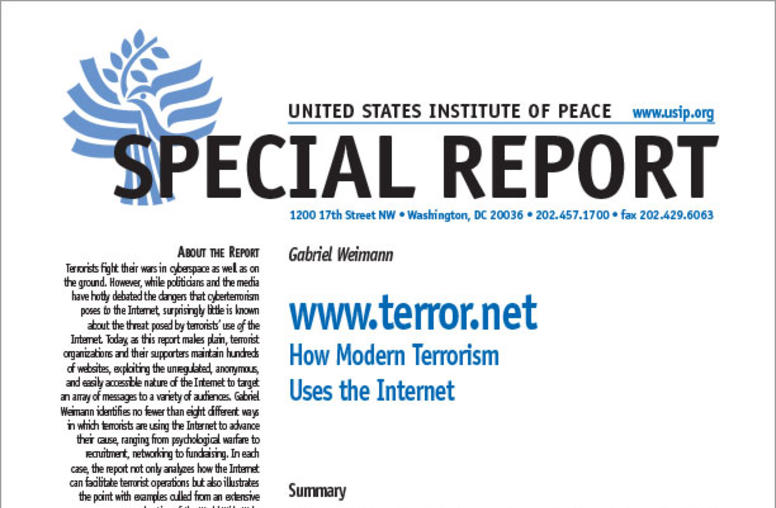
www.terror.net: How Modern Terrorism Uses the Internet
Summary The great virtues of the Internet—ease of access, lack of regulation, vast potential audiences, and fast flow of information, among others—have been turned to the advantage of groups committed to terrorizing societies to achieve their goals. Today, all active terrorist groups have established their presence on the Internet. Our scan of the Internet in 2003–4 revealed hundreds of websites serving terrorists and their supporters.
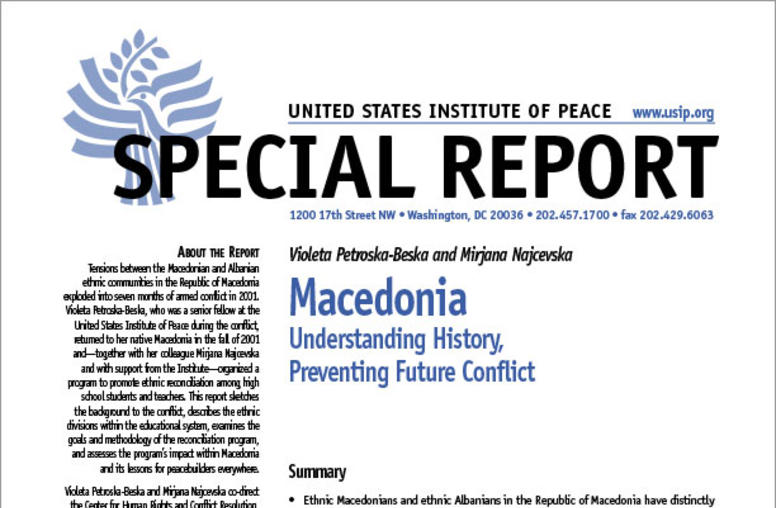
Macedonia: Understanding History, Preventing Future Conflict
Ethnic Macedonians and ethnic Albanians in the Republic of Macedonia have distinctly different but equally ethnocentric views of the causes and course of the armed conflict in 2001. These attitudes, which are largely emotionally driven and fueled by prejudice, are likely to stifle efforts to overcome existing animosities and may well sow the seeds of future conflicts.
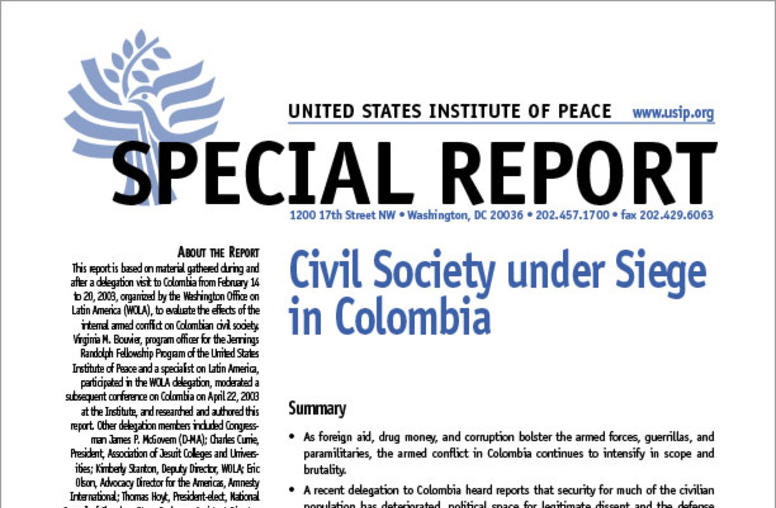
Civil Society Under Siege in Colombia
This report is based on material gathered during and after a delegation visit to Colombia from February 14 to 20, 2003, organized by the Washington Office on Latin America (WOLA), to evaluate the effects of the internal armed conflict on Colombian civil society.
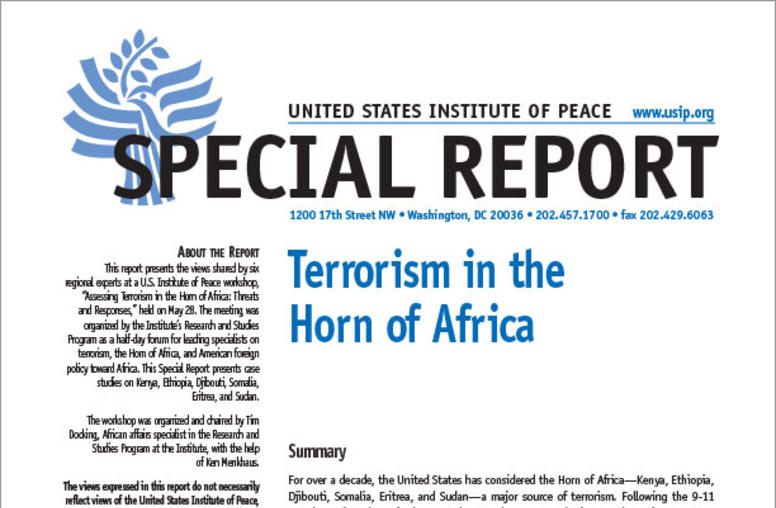
Terrorism in the Horn of Africa
Summary For over a decade, the United States has considered the Horn of Africa—Kenya, Ethiopia, Djibouti, Somalia, Eritrea, and Sudan—a major source of terrorism. Following the 9-11 attacks against the United States, the Horn has come under increased scrutiny as a strategic focal point in the war against terrorism. In May 2003, the Kenyan government admitted that a key member of the al Qaeda terror network was plotting an attack on western targets, confirming al Qaeda's firm local ...
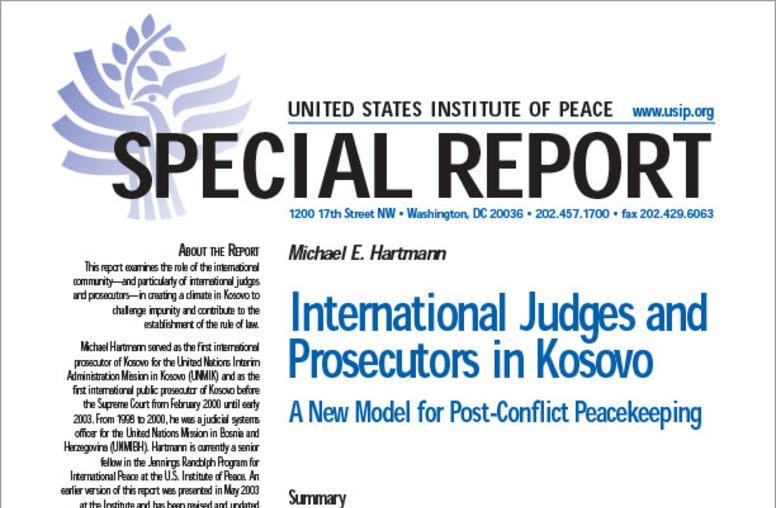
International Judges and Prosecutors in Kosovo: A New Model for Post-Conflict Peacekeeping
This report examines the role of the international community—and particularly of international judges and prosecutors—in creating a climate in Kosovo to challenge impunity and contribute to the establishment of the rule of law.
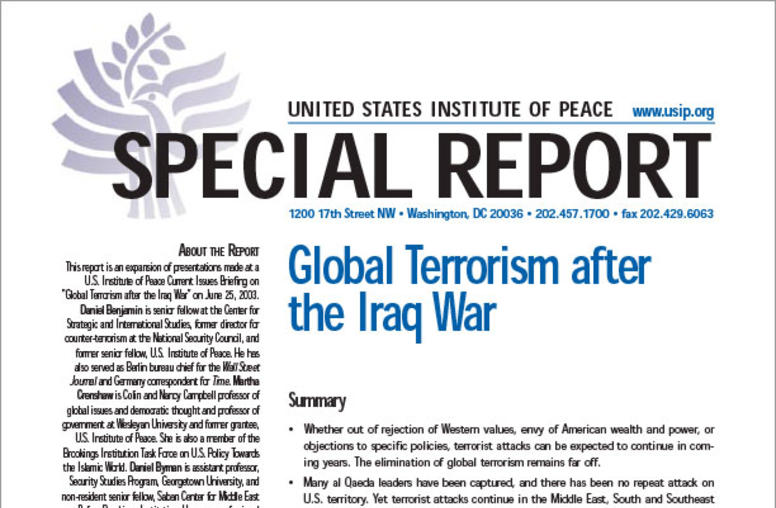
Global Terrorism after the Iraq War
This report is an expansion of presentations made at a U.S. Institute of Peace Current Issues Briefing on "Global Terrorism after the Iraq War" on June 25, 2003
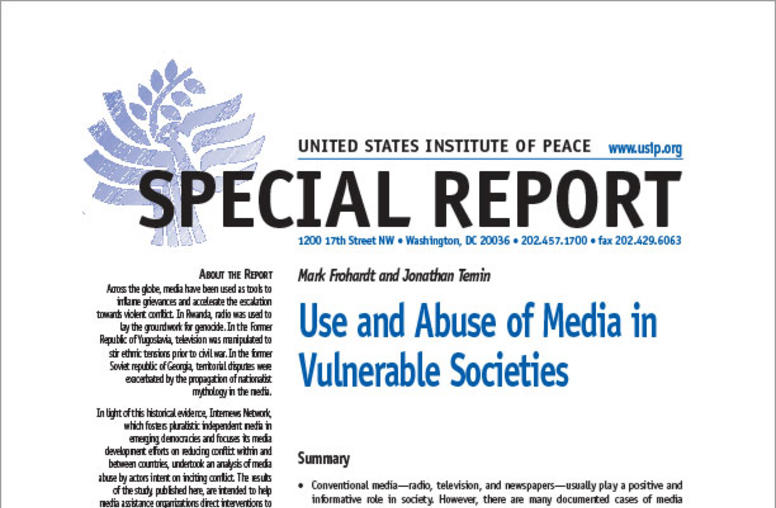
Use and Abuse of Media in Vulnerable Societies
Across the globe, media have been used as tools to inflame grievances and accelerate the escalation towards violent conflict. In Rwanda, radio was used to lay the groundwork for genocide.
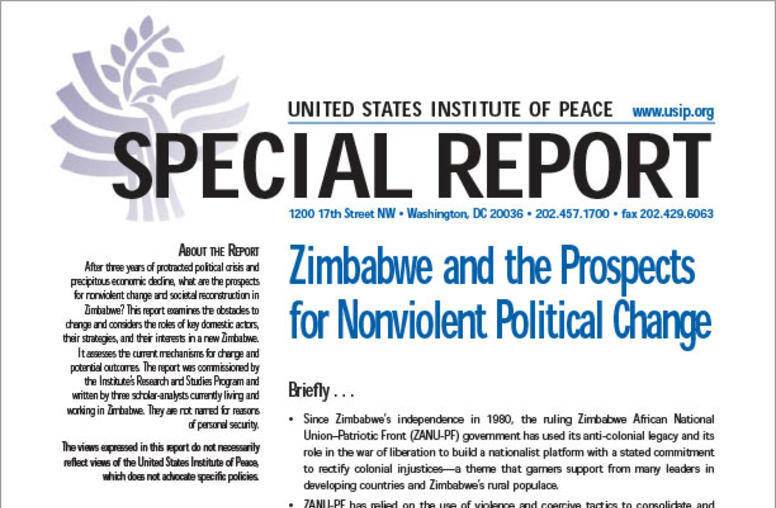
Zimbabwe and the Prospects for Nonviolent Political Change
This report examines the obstacles to change and considers the roles of key domestic actors, their strategies, and their interests in a new Zimbabwe. It assesses the current mechanisms for change and potential outcomes.